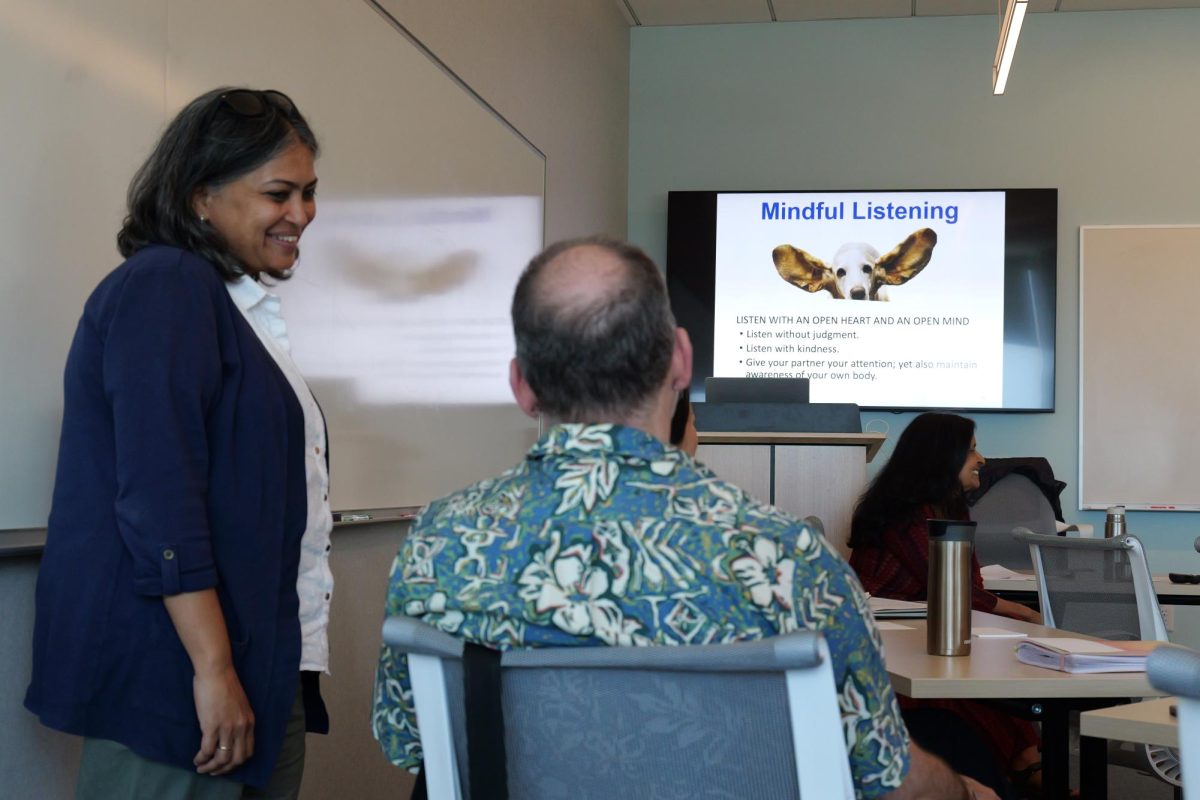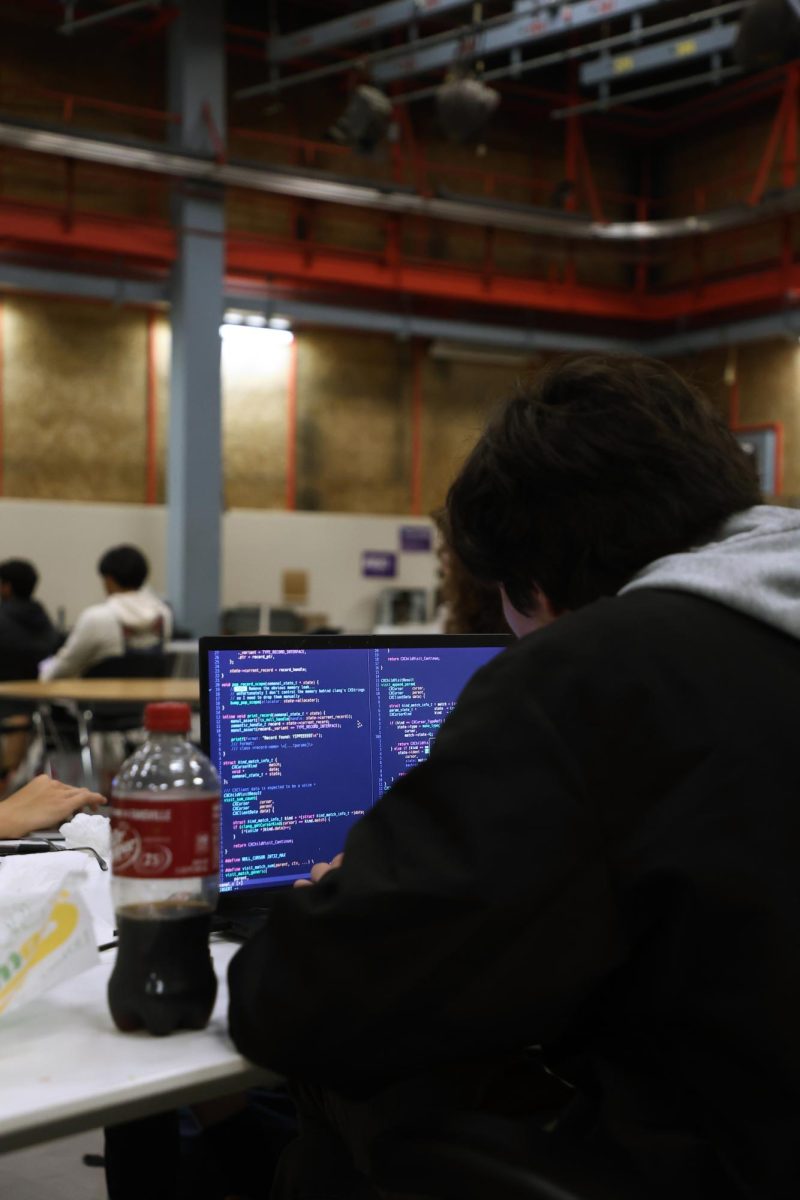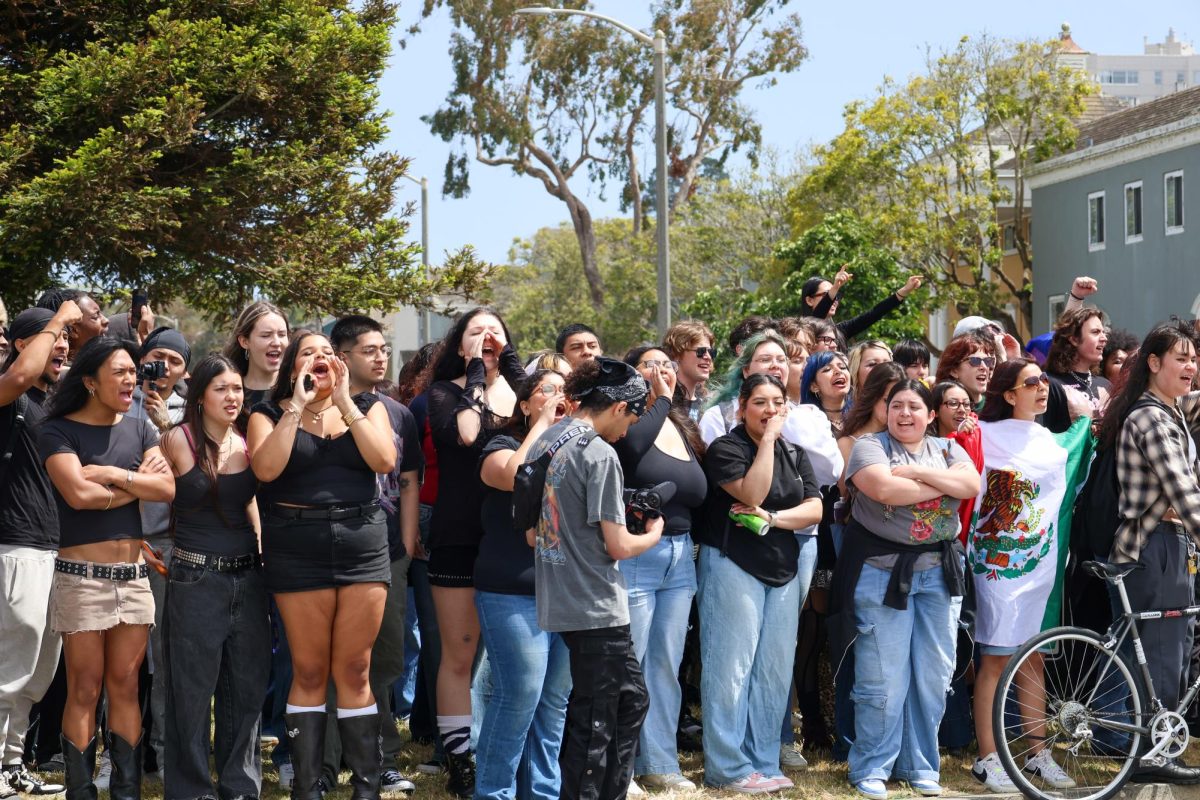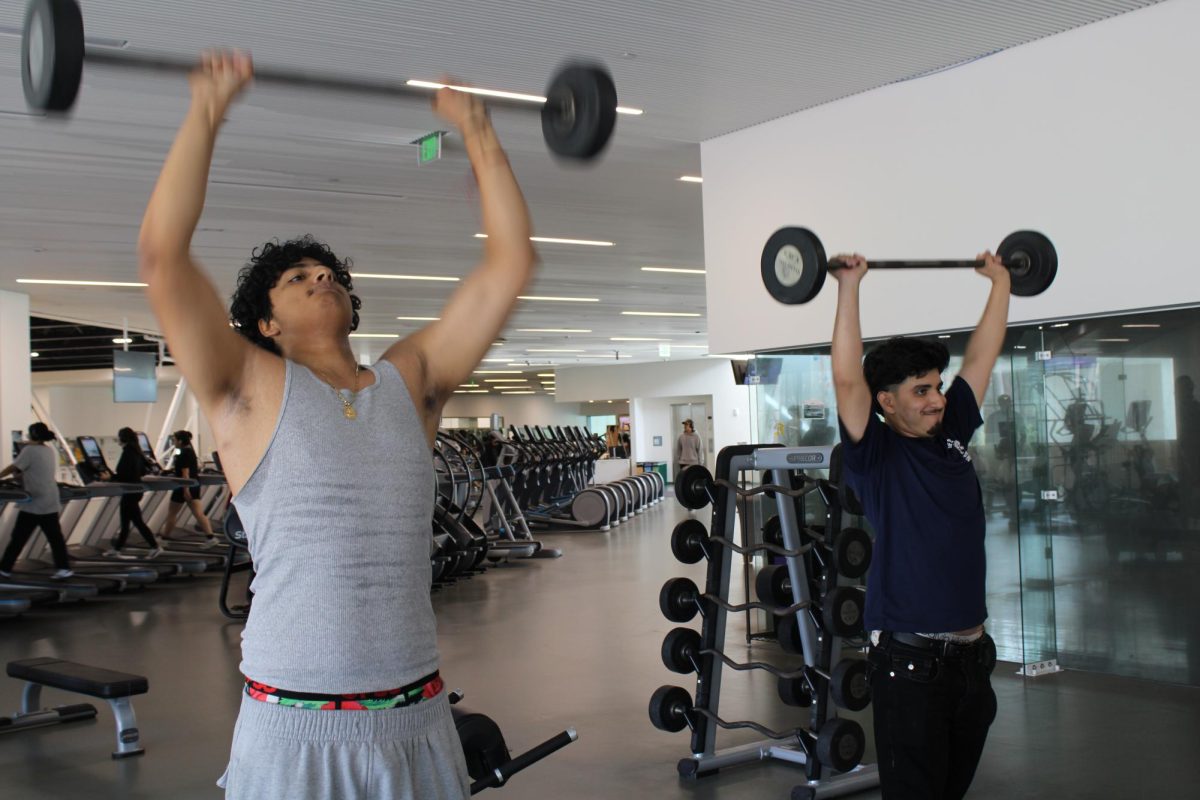SF State has recently implemented an annual 6% increase in tuition costs, while low enrollment has resulted in a cut of over 650 classes, according to the California Faculty Association. According to the Pew Research Center, enrollment numbers have fallen by 1.2 million students since 2011. 1 million of the dropouts are men. “The average cost of college tuition & fees at public four-year institutions has risen 141.0% over the last 20 years for an average annual increase of 7.0%,” According to The Education Data Initiative.
Dr. Maxine J. Lee, an Associate Professor of Economics at SF State, believes the earrings gap between college graduates and non-graduates remains sizable. “You could earn a lot more money by going to college relative to not going to college,” she said.
She chalks up the earning differences to two factors. One is the difference in earnings between attending university and not attending university. Though the costs of college have risen, the Pew Research Center claims that the mean salary of college graduates between the ages of 25 to 37 was about $24,700 more annually than young adults with a high school diploma. The second is the overall time and money spent going to college. If you’re going to college you lose time that could be dedicated to working and making money.
“When the cost of college goes up, then you would need the earnings gap to be larger once you graduate,” said Lee.
In a separate study by the Pew Research Center, 29% of Americans say that college is not worth the cost. 47% say college is worth it, but only without taking loans. Even among four-year college graduates, only 32% say their degree was worth it.
Austin Walden is a 25-year-old who works onsite for Vanguard Construction in Lodi, California. Walden opted to go straight into the workforce instead of attaining a four-year degree.
“It’s money now instead of being in debt … it’s more about being able to afford my bills currently, and then healthcare,” Walden said. “If you’re in a union you get great health benefits – dental, vision.”
Walden spent four years in Local 73, a labor union based out of Stockton. He spent three years as an apprentice before becoming a journeyman.

“I mean, you go to school, and either you’re a D1 athlete and you have a free ride, or you have to pay out the ass,” Walden said. “Then you’re paying it back years or decades afterward that you attended college, and a lot of people don’t even get a job in the field that they got a degree in.”
Data from The Pew Research Center reveals that only 39% of men who have graduated from high school are enrolled in college. This is a decrease from the 47% in 2011. Women, on the other hand, have fallen only 4% in the same period of time, going from 52% to 48%.
“One way to think about it, and this is something that perhaps [is] not very academic, per se, but what I hear often is that it is much easier for men to go into specific trades that are going to pay well even without a college degree relative to if you’re a woman,” said Dr. Lee.
Ember Vosmek-Park, a graduate student studying astrophysics at SF State, thought about becoming an electrician. She was working on enrolling in a JATC [Joint Apprenticeship and Training Committee] but experienced discrimination in the trades, prompting her to seek other alternatives.
“The last step in me getting into the JATC was an interview. I got top scores on my exams, I went in for the interview, and the reception I got, just a room full of men, older white men, and they were just very disrespectful and dismissive, and I decided that’s not where I wanted to be,” Vosmek-Park said. “I was not certain what I wanted to do, but after that, I was pretty sure that I didn’t want to be in that environment.”
Benton Graves, a 28-year-old with a degree in history from the University of Houston, who now works as an electrician apprentice at Great Basin Industrial in Austin, Texas, believes many men feel emasculated by non-physical work.
“There’s also a degree of anxiety guys have about the feminization of the workplace,” said Graves. “They feel emasculated when they’re not working with their body or with their hands, there’s that kind of thing. I’m not sure people are thinking about those kinds of things when they’re going to school, if they are at all.”
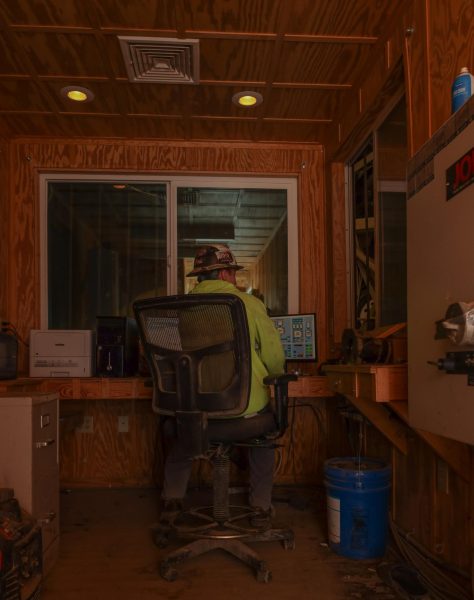
According to The Pew Research Center, one thing that many students are thinking about while attending school is AI.
According to Dr. Lee, uncertainty devalues a college degree by lowering incentives and as uncertainty increases people will be more likely to shy away from investing in college.
“There are different things happening in the world right now,” Dr. Lee said. “Such as the AI, and there is a lot of uncertainty about what jobs are going to stay around versus what jobs aren’t going to stay around,”
According to Forbes 65% of trade workers believe their jobs are safe from AI, while 11% are concerned about being replaced from AI.
Graves believes that the general sentiment of others in the field is that they are safe from AI.
“I don’t think there’s a lot of anxiety in the field, and me personally, who knows? I suppose that you could train AI to look up code questions, but that would just make us more efficient. The actual hand work, an AI can’t do that.”
Ben Varagnolo, a 21-year-old, works at the Smith Rafael Film Center in San Rafael as a general staff member while attending community college at the College of Marin. He is currently studying machining, hoping that one day he can find work in that industry. Varagnolo never liked the idea of college, he prefers working with his hands rather than sitting in class.
“Maybe they think a desk job isn’t really for them,” said Varagnolo. “Some people are attracted to manual labor, some people are interested in problem-solving, some people are interested in cars, they like to do work on cars, and they think that they can become a mechanic in six months instead of going to school for a while, which will just slow down their process of getting their feet wet straight out of high school. I think it’s an instant gratification thing, it doesn’t take nearly as long to get into a trade as it does to become a lawyer.”
Graves also doesn’t like desk work. He sees more of a future in the electrician career path than in becoming a teacher, which is a common job for those with history degrees. Graves is more satisfied with his work as an electrician, compared to an office job he once had.
“It’s like a tangible thing that I can see, you see the results of your work after the end of the day, and all the white collar kinda stuff that I had while I was in college was existentially not great, you don’t see the results, you don’t know why you’re there sometimes.”
According to Automatic Data Processing, commonly known as ADP, between January 2019 and May 2024, the blue-collar share of employment rose faster for workers in their early 20s than for workers aged 25 to 39. However, the blue-collar share for those younger workers has been relatively flat since 2022, signaling a potential plateau or reversal of the trend. Despite this, Graves does not regret his academic career.
“The earning potential is still much better despite all the blah about ‘the trades are the next thing,’” said Graves. “It’s not all it’s cracked out to be, I think people just have this idea that they’re gonna be making a hundred thousand dollars like four years in and they’ll never have to answer to anybody. At the end of the day, you have to answer to a customer at least, or a journeyman or foreman who’s over you.”
Graves believes that college should still be heavily considered as a viable option as it helps broaden a person’s understanding of the world.
“It’s not like you don’t learn about the world when you’re on a job site you know? It’s just not as broad,” said Graves. “I think school is a really good thing, I think college is a really good thing. I think people should stay in school their four years and then figure out what they want to do after.”




